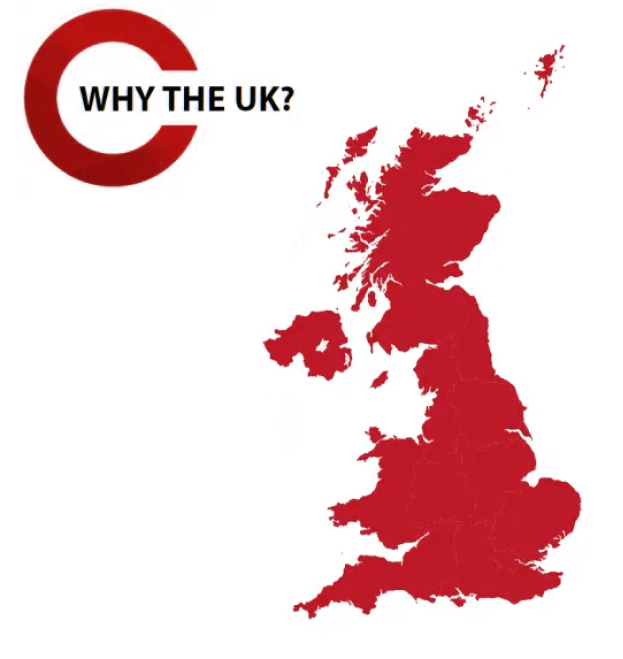

A Quick Look at the UK Talent Visa
Who is the UK Global Talent Visa For?
Do I have to be Inside the UK to Apply?
Understanding Global Talent Visa Endorsement
Can I Switch to a Global Talent Visa?
Can Researchers Receive a Global Talent Visa?
How Long Does a Global Talent Visa Take to Process?
What Documents are Required to Apply for a Global Talent Visa?
Which Awards are Eligible for the Global Talent Visa Without Endorsement?
In February 2020, changes went into effect with what was formerly the Tier 1 (Exceptional Talent) visa, with all persons applying after the date of 20th February 2020 being obligated to follow the new rules.
The new Global Talent Visa comprises 2 categories of eligibility within it:

This visa is aimed at individuals with a proven track record in leadership roles within their given field.

This visa is designed to recognise emerging leaders that have demonstrated potential as leaders in their field.
This new visa allows people that are considered to be leaders or emerging leaders in certain fields to enter the UK. A notable benefit of this revision compared to the previous Tier 2 visa and Tier 2 Sponsor Licence programmes, is that you remain free to work for virtually any employer (or run your own business or be self-employed).


Globally for unicom funding. alter US and China

Employment rate

venture capital investment in UK tech in 2018

In tech sector

UK tech Companies


The UK’s new Global Talent visa (GTV) is aimed at
providing a more streamlined immigration experience for professionals from a number of
disciplines. While many people associate the GTV with Tech Nation, digital technology is only
one of eight fields eligible for this route to residency.
Regardless of the work
specialism, the Global Talent visa includes two distinct categories related to the applicant’s
professional experience, which are:

There are specific criteria set forth to help
determine which of these two categories is right for your background.
Ultimately, however, the evidence you present in your application will need to meet the
specific criteria followed by the endorsing body associated with your field.
Typically, you apply for a Global Talent visa after you have successfully applied for an
endorsement that “proves” you are either a leader or a potential leader.
There are, however, ways to apply for the Global Talent visa without an endorsement if you
have won an eligible award. Below you can see a list of awards that are eligible, however,
this is not set in stone so contact our trusted visa endorsement specialists for the latest
information on eligible awards.

You can apply for a UK Global Talent Visa from inside or outside the United Kingdom.
The process can be a little different in either case, however, so you should be mindful of the
nuances involved.

Yes! You can absolutely switch to a Global Talent visa from certain existing visa programmes.
Switching is done online if you’re already in the UK on one of the aforementioned visas.
Even if you don’t see your visa on this list, working in one of the eligible fields may still qualify you for endorsement – so don’t hesitate to ask us!
In order to reside within the UK under the Global Talent visa, applicants must receive an endorsement from one of the endorsing bodies engaged by the UK Home Office.
Many who apply for a Global Talent visa see the endorsement stage as the
main hurdle of a successful relocation. The role of the endorsing body is to review all of the
documentation that you provide in your application and make an endorsement decision based on the
evidence that you present.
If you are wondering why there are so many departments for an application to go,
it’s mainly because each field must follow separate endorsement criteria that can be unique.
Also, it is imperative that applications are reviewed by people with relevant
experience in the field, as they are better qualified to be able to make accurate
judgments about where an applicant fits into the industry.
Absolutely! Academic professionals not only qualify for the UK’s Global Talent Visa, but can also be
eligible for fast-track options as well.
Typically, all applicants seeking a Global Talent visa must be endorsed by one of the approved
endorsing bodies in their respective field.
Researchers and academic professionals, however, have an abundance of opportunities to either
fast-track the endorsement process or bypass it entirely.
This route is the fast-track to endorsement for individuals who have already accepted a position at an approved UK institution of higher education or research institute, and are:
This route is administered by the British Academy, the Royal Academy of Engineering, and the Royal Society. It officially replaces the previous route, Global Talent visa (senior appointments).
This route is a fast-track to endorsement for those who have been awarded an individual fellowship from the list approved by the British Academy, the Royal Academy of Engineering, and the Royal Society. This fellowship must either be currently held or have occurred within the last 12 months, and you must include a copy of your award letter in your application for endorsement.
Meeting these criteria, including all necessary documents, and ensuring their total accuracy can virtually guarantee a fast-track endorsement.
This fast-track endorsement route is for researchers and specialists who are specifically named, by either their given name or their job title, in a successful grant application from a UK Research and Innovation (UKRI) approved endorsed funder.
In order to be eligible, such researchers must either be hosted or employed by an eligible institution that has been approved by UKRI.
This is the standard endorsement route for individuals who submit an application for full peer review by the British Academy, Royal Academy of Engineering, or Royal Society. This is the route to endorsement for academics and researchers that are otherwise ineligible for fast-track options.
Having been awarded certain prestigious prizes can make an applicant eligible to bypass endorsement entirely. If you have been awarded one of these prizes and are aiming to relocate to the UK, reach out to our team to discuss meeting your specific needs.


On average, applications for endorsement are processed within:
Also, as the Home Office aptly points out, this does not include any time for proving your identity
or submitting such evidentiary documents, so consider planning on a little extra time.
You should also be aware that the endorsement process is separate from the visa application’s
process, although the latter is contingent on the former.
In other words, you may apply for a visa before obtaining an official endorsement letter, but if
your endorsement falls through your visa application will be rejected by consequence.
If you are interested in pursuing potential fast-track options, call us now to arrange a free consultation with one of our experts to discuss your specific needs and eligibility.
Ensuring that you have all of the relevant documentation is vital to a successful application.
Please be aware that if your documents are not in English, you will need to provide a certified translation for every page.
If you have received an award or scholarship to study in the UK in the last year, then you will need written permission to apply from the agency or government that granted it.
Should you have won an eligible award that exempts the need for endorsement, the Home Office will look at publicly available information (such as the award organisation’s website) to confirm that you have indeed won.
You will only be asked for evidence of your win if they cannot find this in your application’s evidentiary documents.
We are very proud of our track record in obtaining successful visa endorsement applications and five star reviews over the years. In addition to the wonderful testimonials and Google reviews that we regularly receive, we are pleased to share the following statistics with you:

As of March 2019, the Tier 1 Entrepreneur Visa program was shut down and replaced with new visa programs aimed at spurring innovation and economic growth in the UK. Along with the UK’s transition